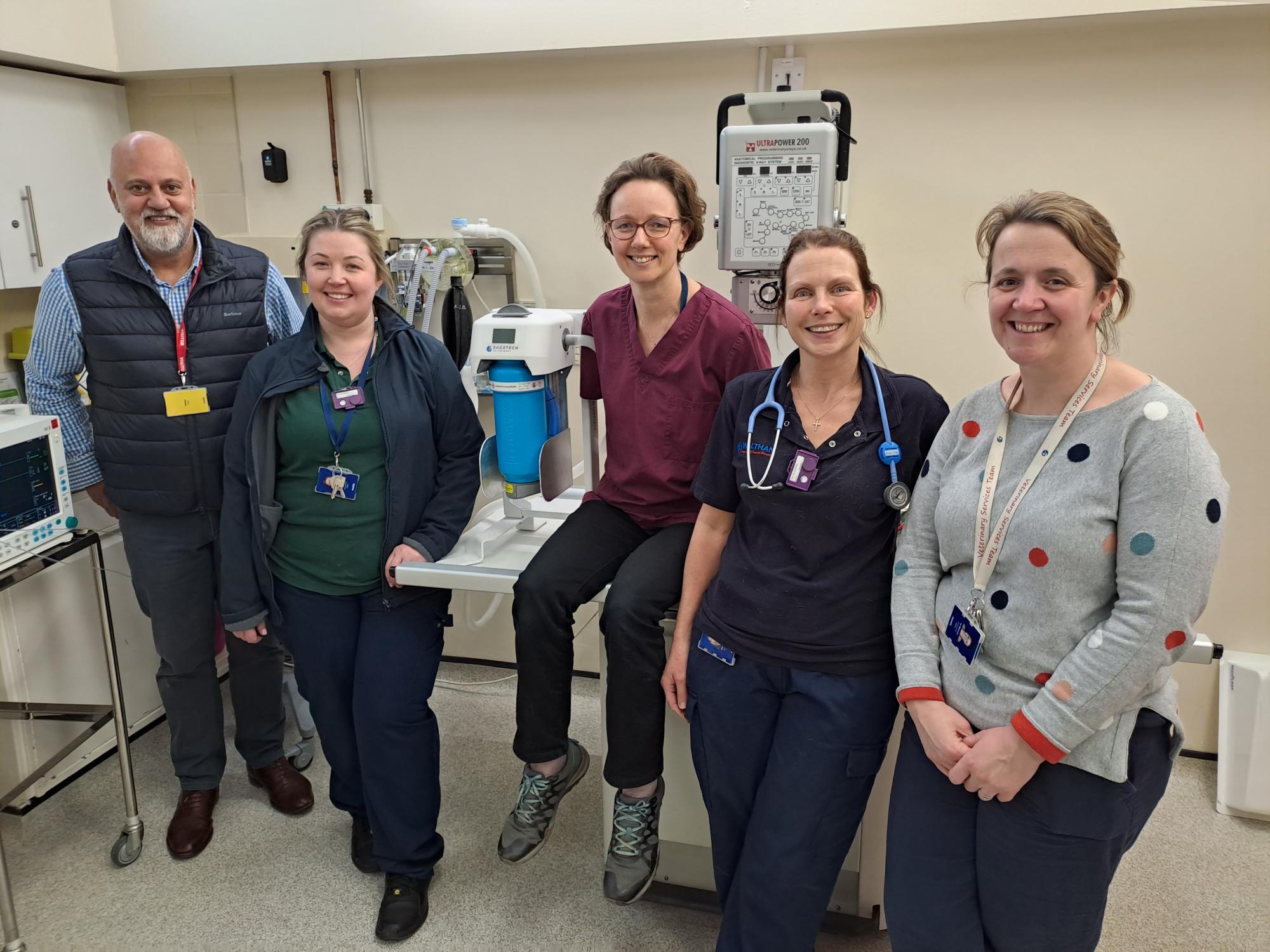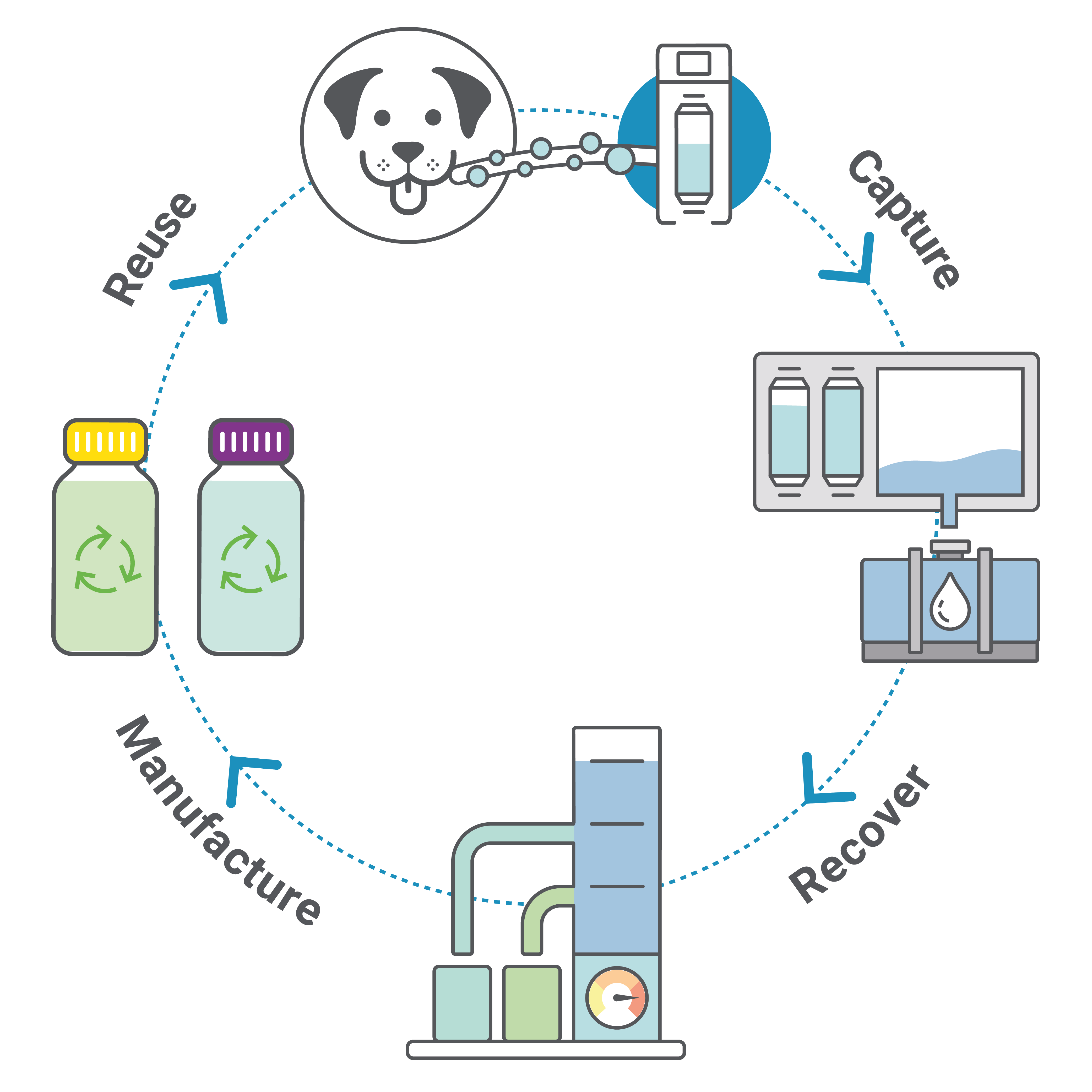Veterinary care provider announces partnership to reduce carbon emissions from anesthetic gas
Mars Veterinary Health will be the first to introduce this in-clinic solution to help support sustainability goals
Ellie West, RCVS and EBVS European specialist in veterinary anesthesia and analgesia and SageTech Waltham Team (Image courtesy of Mars Veterinary Health)

Mars Veterinary Health announced its United Kingdom veterinary group Linnaeus, in partnership with Waltham Petcare Science Institute, launched a first-of-its-kind partnership with SageTech Veterinary (SageTech), a manufacturer of virgin anesthetic agents. The partnership is to pilot an innovative anesthetic gas capture solution to stop harmful greenhouse gases from entering the atmosphere.
According to the organizational release,1 SageTech’s trusted gas-capture technology, currently being utilized in human medicine, captures the waste anesthetic agents breathed out in an operation by safely adsorbing it into a specially developed capture canister that is reusable. Once captured, the waste is then extracted from the filter which avoids current routes for disposal of volatile anesthetic agents of incineration or released into the atmosphere.
"As a leading provider of veterinary care, we have a responsibility to take climate action at scale and lead the way toward more sustainable practices," said Ellie West, RCVS and EBVS European specialist in veterinary anesthesia and analgesia, and Linnaeus environmental sustainability lead, in an organizational release.1 "Our innovative collaboration should help us take a significant step forward in our sustainability journey, aimed at contributing to a better future for the planet—and the people and pets who depend on it."
The partnership will have a 1-year pilot that will begin with 10 Linnaeus primary care and referral practices in the United Kingdom. The goal is to help reduce the carbon emissions that are anesthesia-related which result from the release or disposal of these agents with hopes to also determine the efficiency of capture in the 10 clinics.1 Mars Animal Health is aiming to then use the learnings from the pilot to explore the application of this technology across other parts of the business in years to come.
Graphic courtesy of Mars Veterinary Health

"At SageTech Veterinary, we are excited to share our developed technology and work alongside Mars Veterinary Health to significantly reduce the carbon footprint associated with the direct release of waste volatile anesthetic agents to the environment," expressed Iain Menneer, CEO of SageTech Medical. "It has been wonderful to work with the Linnaeus and Waltham teams, and we are confident this pilot project will demonstrate to the veterinary profession how such collaborations can be a collective force for good."
The program is consistent with Mars Incorporated Net Zero Roadmap, which is working to cut the company's greenhouse gasses emissions by 50% by 2023 to reach net zero by the year 2050.2
References
- Mars Veterinary Health pilots industry-leading anaesthetic gas capture technology to reduce carbon emissions. News release. Mars PetCare. April 2, 2024. Accessed April 3, 2024. https://prnmedia.prnewswire.com/news-releases/mars-veterinary-health-pilots-industry-leading-anaesthetic-gas-capture-technology-to-reduce-carbon-emissions-302106231.html
- Mars Publishes "Accelerated, Affordable And Achievable" Net Zero Roadmap To Cut Emissions 50% By 2030 Across Full Value Chain. News release. Mars, Incorporated. September 14, 2024. Accessed April 3, 2024. https://www.prnewswire.com/news-releases/mars-publishes-accelerated-affordable-and-achievable-net-zero-roadmap-to-cut-emissions-50-by-2030-across-full-value-chain-301927317.html
Newsletter
From exam room tips to practice management insights, get trusted veterinary news delivered straight to your inbox—subscribe to dvm360.